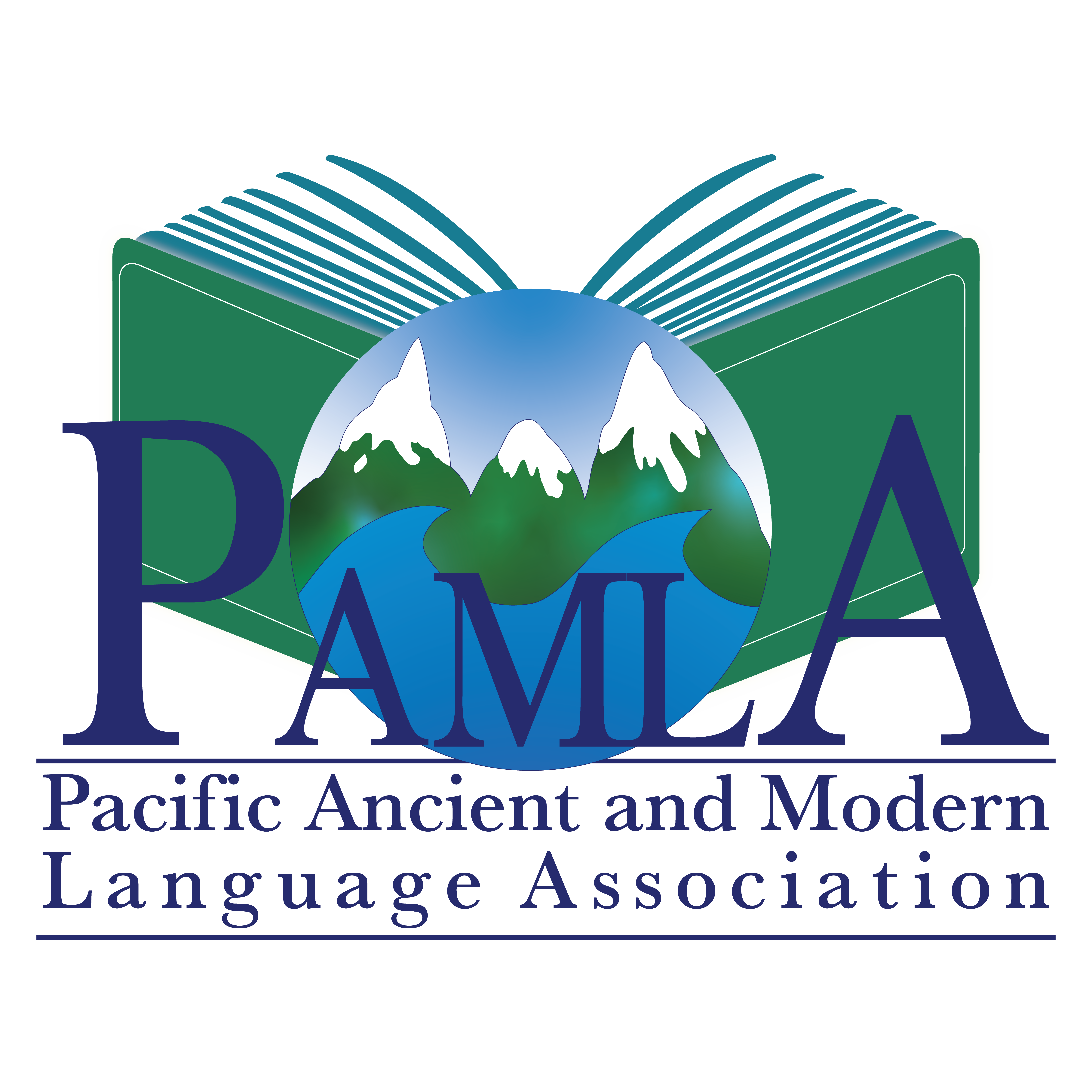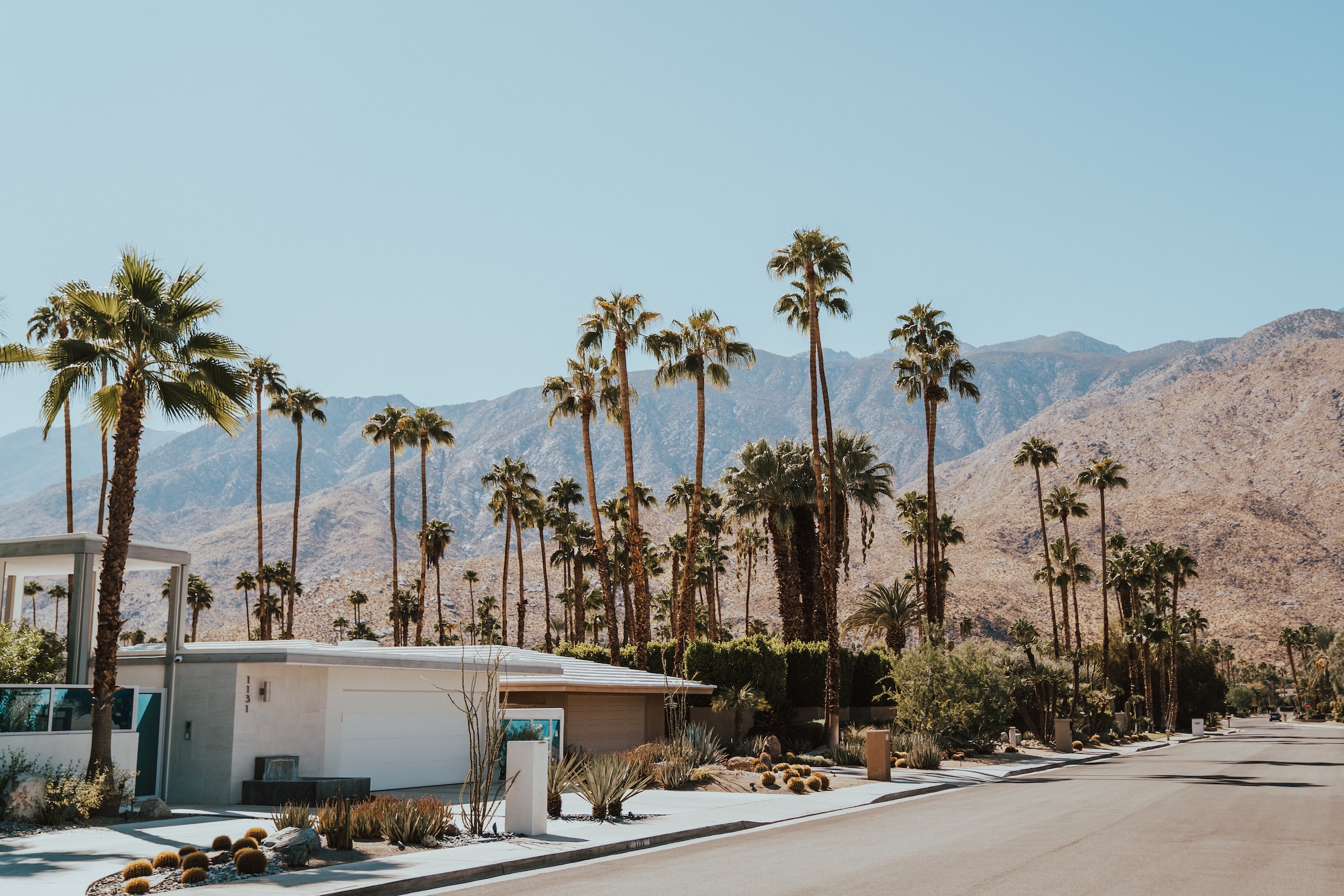PAMLA 2024 Palm Springs: “Translation in Action”
The 121st annual PAMLA Conference will be held between November 6 – November 10, 2024 at the Riveria Resort (formerly the Margaritaville Resort) in Palm Springs, California.
The PAMLA conference will open with a welcome event on Wednesday afternoon, November 6, and then sessions will begin on Thursday morning, November 7, and will continue through Sunday afternoon, November 10.
PAMLA welcomes special session proposals for the 2024 PAMLA conference in Palm Springs, California on topics of scholarly interest that are not too close to the topics of our general (standing) sessions (see below to find a list of PAMLA’s general/standing sessions).
You may still submit a proposal for a special session: https://pamla.ballastacademic.com/
Special session and paper submissions are not limited to the theme of this year’s conference, “Translation in Action.” But if you’d like to touch on the theme that would be most welcome.
While we welcome special sessions on a wide range of topics, we are particularly interested in special session proposals that engage with the 2024 PAMLA Conference theme, “Translation in Action.” While most scholarship about translation deals with the interlingual, we welcome scholarship on the other areas discussed by Roman Jakobson such as intralingual and intersemiotic translation. We plan on celebrating the work of a wide range of scholars and translators such as Michael Cronin, Moira Inghilleri, and many others. We seek proposals dealing with translation as a diverse set of practices, a dynamic field of study, and a set of complex networks that affect our lives. Once again, we are open to a variety of interests, but for this year, we are especially interested in proposals on the theme of “Translation in Action.”
The list of possible topics below should act as a springboard for creative and scholarly proposals:
- Work from scholars interested in translation studies who are in dialogue with other fields of studies and utilize diverse methodologies, theories, and approaches to enrich translation studies;
- Translation as part of empire building as well as translations that feature nomadic experiences and histories;
- The history and practice of translation in different cultures and at different times;
- Work about or of translation from one media to another, including proposals about or of ekphrasis and adaptation;
- Scholars who research the exchanges and negotiations of immigrants during entry into a country;
- Investigations of less studied and/or less translated languages such as indigenous ones;
- Research into the intersections between disability studies and translation studies;
- The pedagogy of translation–proposals about how we utilize translation in our classrooms;
- Proposals focusing on a wide range of rural and urban sites such as our streets, where translation plays a part in our signage, graffiti, and murals;
- Digital spaces and how translation jumps off the page onto digital screens and other media;
- Translation in relationship to travel, tourism, and global commerce;
- The difficulties and potential opportunities of translation among communities and people from different cultures, languages, regions, religions, backgrounds, nation states, and beliefs;
- The limitations or even impossibilities of translation, including the ubiquity of miscommunication, misunderstandings, and limited understandings, as seen in life, literature, or art;
- Proposals that deal with the essential issues when addressing translation, interpretation, and other forms of intercultural negotiation and mediation;
- Teaching translation in community sites and/or academic institutions that deal with training and pedagogy;
- The complexities and issues surrounding gender in translation, adaptation, and interpretation;
- Studies of how the language of disability is translated and interpreted from country to country;
- How translators and interpreters affect the lives of immigrants, migrants, and individuals with disabilities;
- The topics of power and subversion in translations, adaptations, and cultural negotiations and mediations;
- The effects of computer-generated translations in our classrooms, creative work, and scholarship;
- How translations are archived and what the impacts of such archives are;
- What we are learning about how we might use AI for audiovisual translations and interpretations;
- The role of translation in comics and graphic novels, especially in the areas of linguistics and visuals (such as facial and other expressions);
- How translation shapes the ways we understand the concept of heritage;
- How subtitles on our screens affect us and our understanding of other cultures;
- Translation’s role in literature, film, theater, and media especially regarding travel and culture;
- Submissions that focus on how translations affect our relationships with nature and other complex networks where we see the interconnectedness of life within an ecosystem;
- Encountering and teaching the past as an act of translation; as L.P. Hartley wrote, “The past is a foreign country”;
- The role of translation in a variety of genres, including science fiction, fantasy, historical fiction, and travel narratives;
- Issues and practices of poetry and translation; bilingual and multilingual poetry and poetics; the dangers and opportunities of poetry in translation;
- The importance of cosmopolitan sites such as mini marts, mercados, nail salons, and other common sites for complex cultural exchanges and what role translation plays in these diverse interactions.
*PAMLA encourages special session proposals with alternative formats, such as roundtables, workshops, creative conversations, etc.; PAMLA encourages session proposals that will welcome paper proposals from a wide variety of scholars, not just scholars from the presiding officer’s host institution.
*PAMLA hosts the following General/Standing Sessions (So please make sure that your special session proposal does not merely replicate the topic of one of these existing General/Standing Sessions):
21st-Century Literature; Adaptation Studies; African American Literature; American Literature before 1865; American Literature 1865-1945; American Literature after 1945; Ancient-Modern Relations; Anime and Manga; Architecture, Space, and Literature; Asian American Literature; Asian Literature; Austrian Studies; Autobiography; Bible and Literature; British Literature and Culture: To 1700; British Literature and Culture: The Long Eighteenth Century; British Literature and Culture: The Long Nineteenth Century; British Literature and Culture: 20th and 21st Century; Carceral/Prison Studies; Children’s Literature; Classics (Greek); Classics (Latin); Coalitional Feminisms; Comics and Graphic Narratives; Comparative American Ethnic Literature; Comparative Literature; Comparative Media; Composition and Rhetoric; Creative Writing; Critical Theory; Cultural History; Digital Studies; Disability Studies; Disney and Its Worlds; Drama and Society; East-West Literary Relations; Film and Literature; Film Studies; Folklore and Mythology; Food Studies; French; Gay, Lesbian and Transgender Literature; Germanic Studies; Gothic; Hip Hop Poetics; Indigenous Literatures and Cultures; Italian; Italian Cinema; Italian Ecocriticism; Jewish Literature and Culture; Latina/o Literature and Culture; Linguistics; Literature & the Other Arts; Literature and Religion; Medieval Literature; Middle English Literature, including Chaucer; New Italians; Oceanic Literatures and Cultures; Old English Literature, including Beowulf; Poetry and Poetics; Post-Colonial Literature; Religion in American Literature; Rhetorical Approaches to Literature; Romanticism; Science Fiction; Shakespeare and Related Topics; Spain, Portugal, and Latin America: Jewish Culture & Literature in Trans-Iberia, Spanish and Portuguese (Latin American); Spanish and Portuguese (Peninsular); Teaching with Media and Technology; Teaching Writing Across the Disciplines; Television Studies; Travel and Literature; Veterans Studies; Video Game Studies; Western American Literature; Women in Literature; Young Adult Literature and Culture.
Other Special Session Topics
As always, we welcome special session proposals (due March 31, 2024 via our online special session proposal system: pamla.ballastacademic.com) on the preceding topics related to our conference theme, but also on other topics of broad interest (in other words, special session proposals will be entertained that do not connect to the conference theme, as well as proposals that do). This year, we are particularly interested in special session proposals broad enough to perhaps justify becoming general (standing) sessions after three successful years as special sessions.
For example, PAMLA’s board would welcome special session proposals on topics such as:
- Multilingual American Literature (in other languages than English, or in English and other languages, both)
- Arabic Literature and Culture
- ASL
- Audiences or Reader Response Theory
- Audio (or Sound) Studies
- Banned, Burned, or Censored: A Roundtable About Free Speech and Books
- Books: perhaps including Textual Studies, Materiality, History of the Book, etc.
- Chinese Literature, Film, and Culture
- Class or Marxist Literature, Film, and Culture
- Creative Writing: Drama or Creative Writing: Creative Nonfiction or other topics of interest
- Fan Fiction or Fan Studies
- Futurisms (to include Afrofuturism, Indigenous Futurism, etc.) Or Multi-Ethnic Futurisms
- Hmong
- Immigrant Studies (Or Movement, Migration, and Immigration)
- Infrastructure Studies
- Interdisciplinary or Innovative sessions
- Korean Literature, Film, and Culture
- Teaching of Literary Works (focusing on a particular work)
- Modernism
- Multi-ethnic German
- Museum Studies
- Objects, Stuff, and Things; Object Studies
- Pedagogy
- Performance Studies
- Portuguese
- Posthuman or Animal Studies
- Posthumanities
- The Postmodern
- Slang, Languages, and Dialects (or Underground Languages)
- Sociolinguistics
- Scottish Literature, Culture, and/or Studies
- Spatial Studies
- Transcultural (or Transnational) Literature
- Translation Studies
- Vietnamese
If you have any questions, please contact PAMLA Executive Director Craig Svonkin ([email protected]) or PAMLA Vice President Peter Schulman ([email protected]).

